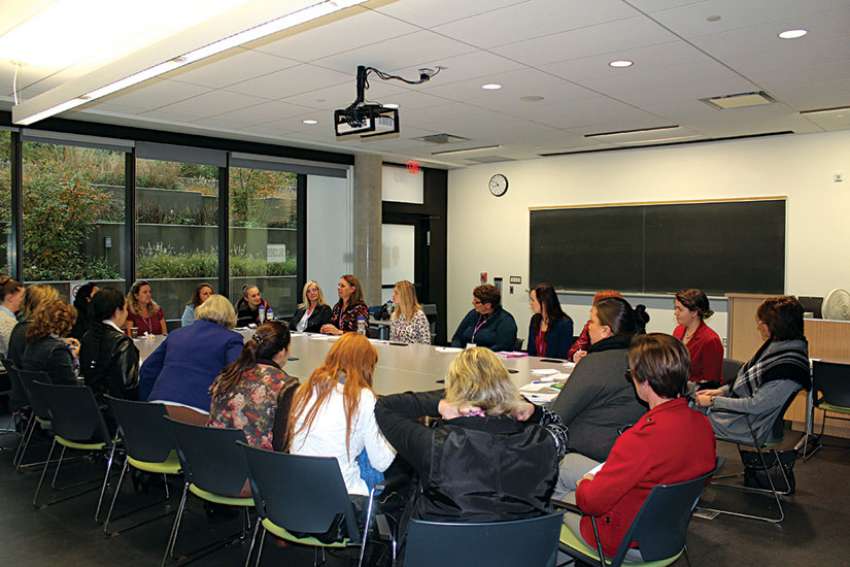On Oct. 27, the school at Western University in London, Ont., hosted its first Women’s Political Summit, a day dedicated to discussing the gender gap within Canada’s political system.
More than 80 female mayors, city councillors, First Nations chiefs, school trustees and other community leaders attended the event. Participants spent the day in workshops and breakout sessions to learn about different ways that women are changing the male-dominated political world.
“I don’t know if I ever heard so many people saying, ‘We have to do this. We have to do this next year. We have to do this more often,’” said Allyson Larkin, King’s professor and facilitator of the summit. “I really think the whole day was about mentoring, about building relationships, about realizing that there’s no go-to manual that’s going to all of a sudden create equal representation in our society.”
The United Nations has said that a critical mass of at least 30 per cent women is needed in order to properly represent women’s concerns in public policy. Although Canada has seen record numbers of female candidates elected within the past two federal elections in 2011 and 2015, a little more than 25 per cent of the seats in Parliament are occupied by women.
According to 2013 data from Statistics Canada, female representation across all levels of government is even lower. A little more than 25 per cent of provincial and territorial seats are occupied by women. Of the 20,513 municipal council seats, 25 per cent are women councillors. Only 16 per cent of Canada’s mayors are women.
One of the main points of discussion at the Women’s Political Summit was about the precedent that Prime Minister Justin Trudeau set last year by forming a gender-balanced cabinet.
“I think that (the 50-50 cabinet) definitely brought the debate about gender representation into the mainstream,” said Larkin. “Now, as a scholar, I’m less persuaded by numerical representation. I think that if we are just talking about numbers, we are missing a bigger problem.”
Many women leaders in the summit workshops discussed the need for a culture shift within the political system. For many years, the political sphere has been described as “the old boys’ network.”
“It’s one thing for us to get along with that network and go out for beers with them or go out and play golf with them, but there was a strong contingent of women who have been in politics for a long time who felt like that is what we’ve got to crack. There needs to be a change in that culture,” said Larkin.
During the summit, former London mayor Joni Baechler screened her 2014 documentary, 25%, as part of her keynote address. The film examines the barriers Canadian women face at all levels of government.
The summit is an extension of a women’s mentorship program that Larkin runs at King’s. The Head Start program gives six female students the opportunity to shadow and work with female mentors, including London city councillors and other municipal and non-profit leaders. The program, first launched in 2013, became an official course credit in 2014 for King’s Social Justice and Peace Studies program.
Next year, Larkin hopes to double the mentorship program to include 12 student participants.


